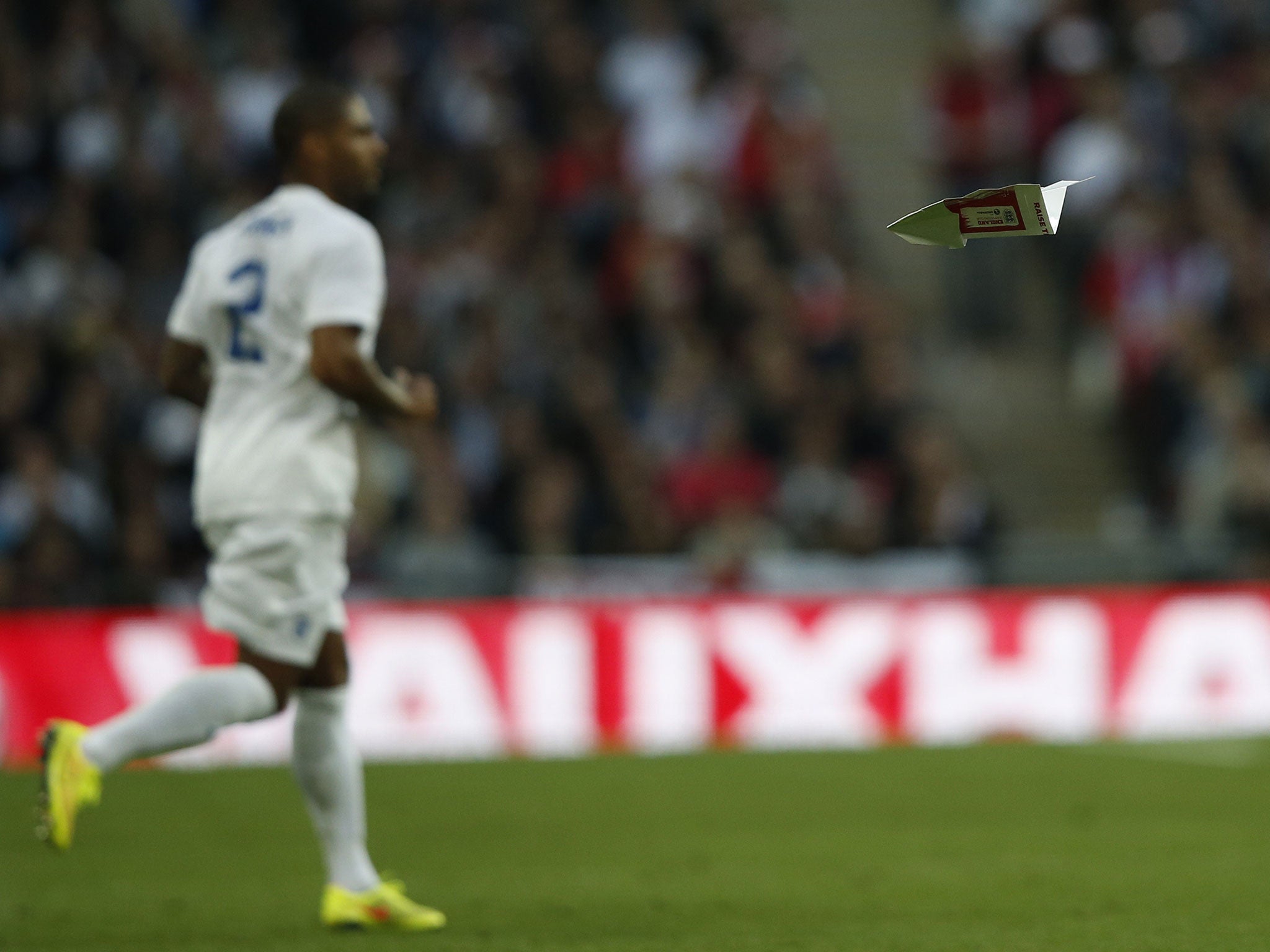Robin Scott-Elliot: If you cannot be an English optimist now just when can you?

There is something endearingly English about the send-off given to Roy Hodgson’s squad from Wembley on Friday. With paper aeroplanes whizzing around it all got a bit Tom Brown’s Schooldays. Goodbye Mr Hodgson, accompanied by some over-priced chips.
Hodgson’s England are not like the ‘golden’ squads who have jetted off for previous attempts at world domination and that seems to have filtered through to a decent proportion of the country’s supporters. They are setting off on an awfully big adventure from which fingers crossed for the best but whatever happens there will be lashings of beer and rueful smiles. If it were done when ‘tis done, then ‘twere well it were done quickly, as Shakespeare had it.
That was a line delivered by a Scot, and is very much how Scotland used to manage their World Cup participation way back when. Watching England’s solid so-long at Wembley it makes the departure of the previous British side to head for a World Cup in South America seem ever more fantastical, a fairy tale for Tartan Army mothers and fathers to tell their children. “Once upon a time when I was on the march wi’ Ally’s army, we truly believed we might win the World Cup…”
On Thursday morning, Kings Cross was populated by blurry-eyed members of the Tartan Army, heading home after Scotland’s game with Nigeria at Craven Cottage the previous evening. Not far away from the station is the British Postal Museum and Archive. Among its archive of stamps designed but never used is one that any Scotland fan would love to have, let alone love to have licked and fixed to a letter.
In the background of the 9p stamp footballers are leaping up and down in celebration, in front of them another is lifting the World Cup, wearing a dark blue shirt. Underneath is written “SCOTLAND, World Cup winners 1978.”
Scotland’s farewell was on an open-top bus driven around Hampden Park in front of a crowd of 30,000. Supporters lined the streets en route to the airport. Ally McLeod, who turned chutzpah into a Scottish word for one summer, claimed to have seen a man so excited by it all he had run naked from the shower to wave at the team bus as it passed.
“We have 17 or 18 of the finest players in British football, men who had it in them to win the World Cup,” said McLeod, as Alan Rough plumped up his perm in the background. It was actually a very decent squad: Gemmill, Buchan, Dalglish, Rioch, McQueen, Hartford and a snarling Souness, socks around his ankles.
Everyone knows what happened next. When the squad returned a number of players even slipped off the plane when it stopped in London to avoid coming home through Glasgow airport.
For those who grew up in the 70s and 80s World Cups were the only time football was wall-to-wall on TV. It was a time to marvel at the world’s game – nobody had a clue about Peru’s left-back (including McLeod, who didn’t bother to even scout his side’s first opponents in Argentina). For many World Cups are the first kiss, the beginnings of a life-long affair with the game. 1978 was my first, and even though it was like being canoodled by someone who had consumed a bagful of deep-fried onion rings smothered in curry sauce, I was head over heels. Archie Gemmill, oh my god. It’s why so many grown-ups still do Panini sticker albums on the sly.
What must it be like to play in a World Cup? A couple of years ago a commentator on a Champions League game made reference to Andres Iniesta, the man who scored the winning goal in the World Cup final. That struck a chord; imagine being Andres Iniesta. Imagine what Luke Shaw at the age of 18, or Adam Lallana and Rickie Lambert must be thinking as they unpack in Miami.
What will the young Scotland players who impressed in that friendly against Nigeria be thinking when they sit down to watch the finals? Under Gordon Strachan (1986, trying to get his leg over the advertising hoarding after scoring against Germany) there are the first signs that it might, just might, be worth dusting down that old Scottish optimism. The reason for Scotland’s improvement is that Strachan has freed his players to do what they do best for their clubs. Gone is the fear and restriction of Craig Levein’s time.
Last week I interviewed Stuart Broad and he spoke about how the key to succeeding at international level is to play as you do for your club, and to have coaches around the international set-up that help and allow you to do that. At Lord’s on Saturday Jos Buttler managed it gloriously.
The mood around England’s footballers seems notably relaxed. Maybe Hodgson, with a little help from Steve Peters, has freed England’s players from the irons that appear clamped on whenever they leave these shores for World Cups, and Lallana will play as he plays for Southampton and Steven Gerrard for Liverpool…
As any Scotland fan can tell you, if you cannot be an English optimist now just when can you?
Join our commenting forum
Join thought-provoking conversations, follow other Independent readers and see their replies
Comments
Bookmark popover
Removed from bookmarks